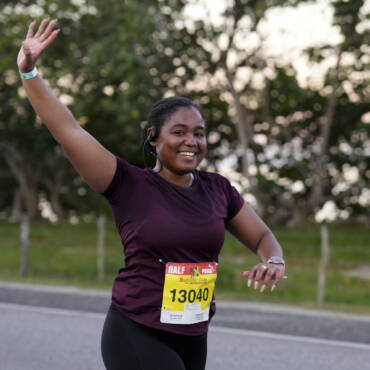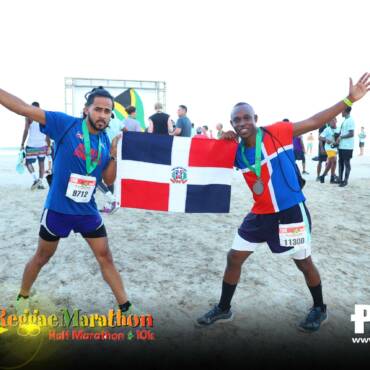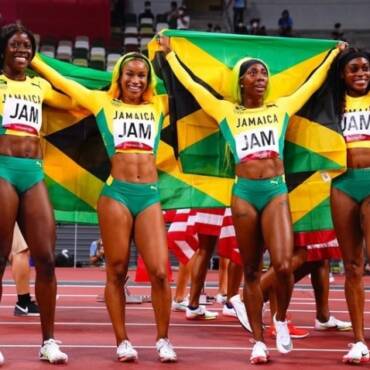I grew up eating bananas. That's not hard to do living in Jamaica. Boiled green bananas with meals and ripe yellow bananas for snacks. Little did I know at the time how beneficial bananas were in recovering after a long run or race. The high concentration of potassium in ripe bananas is by now well known to most of us. And at Reggae Marathon the first thing you should do after the cool misting tent is to grab a banana. OK, maybe the fresh cut coconut is first! In any case, the combination of electrolytes in the coconut water combined with the goodness found in the banana is an ideal combo for a speedy Reggae Marathon recovery.
The following excerpt from an article called Bananas as Superfood includes some interesting benefits of bananas and some fun facts. Like me, you may find that you have a banana craving after reading. You've been warned.
5
Health Benefits of Bananas:
- Normalized Blood Pressure and Heart Function:
1 cup of bananas has a whopping 800 mg of potassium. Most Americans have an imbalanced sodium/potassium balance which is correlated with hypertension, heart disease and diabetes. This is also critical for nerve impulse transmission and muscle contraction.- Improved Elimination:
Bananas contain significant amounts of pectin, a soluble fiber.- Low Glycemic Level:
Although bananas have a lot of sugars, these digest relatively slowly with a glycemic index of 30 for unripe bananas and 60 for ripe. This means you get energy without the rapid blood sugar yo-yo.- Improved Calcium Absorption:
Bananas are high in fructooligosaccharide, a probiotic that encourages growth of friendly bacteria. These friendly bacteria promote proper digestion, including calcium and other minerals. They also reduce the risk of colon cancer.- Heartburn:
Bananas are naturally an antacid. Eating a banana helps with heartburn.
Interesting Facts:
- The banana is the largest herb on earth. What looks like a banana tree is not a tree but a herbaceous plant that grows up to 40 feet tall.
- All bananas are slightly radioactive. Along with their high potassium content come small amounts of the isotope potassium-40, found in all naturally occurring potassium.
- The yellow banana you eat is a mutant: a genetic variation on the hundreds of other varieties and rainbow of colors. The yellow banana is the sweetest.
- United States immigrants were given bananas when they reached Ellis Island in New York. Many had never seen a banana before. They didn’t know they needed to peel them and ate them whole.
- Some bananas are fuzzy pink; some when cooked taste like strawberries.
- There are over 500 varieties of bananas; they come in many shapes and sizes, from small finger fruits to big purple plantains.
- Many species of bananas have lower sugar content than the common yellow banana, and are often cooked. These are commonly referred to as plantains.
And just in case these aren't enough, check out this link for a recipe for making a banana hair conditioner.
“Eat a banana” never sounded so good. I now carry my own banana to all my races just in case the organizers don't provide them. For the coconut water however, I'll have to wait until Reggae Marathon this December.
Until next time…
++++++
For more information check the Reggae Marathon Web Site. To register now click here for the Reggae Marathon Registration Page.



